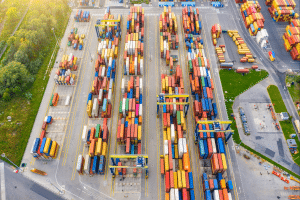Partnerships encourage the concept of business integration, enabling companies to move forward and deliver stakeholder value. However there’s a need to connect information and data at a level of granularity.
For this, it’s crucial to go beyond the conventional methods and initiate a true mindset shift. This is especially needed when Cloud is concerned.
The hard task is initiating a paradigm shift that takes people forward. Microsoft Office 365 and its ability to work in a Cloud environment from anywhere real time is a good example.
Tech companies often need to retrain core skillsets to evolve. Office 365 story is illustrative here as well– an older suite of products moving to a new Cloud-based, high-granularity paradigm.
Future Native
Part and parcel of our philosophy is to introduce tools natively built for the future. Over the past decade, we underwent a shift towards a Cloud-native company.
Though it requires heavy investment, the main benefit is the ability to use the massive computing power to train Machine Learning (ML) models, which eventually lead to AI tools in a collaborative design interface.
With the cost of computing getting cheaper every year, we are entering a world where investment in Cloud capability allows deploying transformative AI agents. Moving our portfolio to the Cloud has become foundational to us.
AI is going to ignite the spark of creativity as it reduces the time people spend on labor-intensive tasks. AI can only work best when it collaborates with humans. We are still a long way away from an AI agent that can fully create an output that is as good as what a human can create over a long time.
Most successful people in the future are going to be those who collaborate with AI to the highest degree. There’s no point in being afraid of AI, or worrying whether it will replace humans, rather we should try to leverage it as much as we can.
Industry leaders who master AI collaboration and reap maximum advantage out of it will stay ahead of the curve in innovation as well as business models. This is the ground truth.
“By the next decade, the impact of AI across sectors will be so tremendous that companies can only wait today at their own peril.”
Organic Evolution
Technology should evolve and play out on its own pace. Attempts to control it can destroy its potential. Regulations need to be instituted only for those areas that can have an adverse impact on people’s lives. There’s a need of a fine balance over stringent regulations that would impede the development of newer Machine Learning models.
Regulators in Washington DC need to talk to experts in academia, industry and other places so that they can regulate AI smartly.
We shouldn’t repeat the mistake we made with social media platforms: with the clause that said they are not accountable for the content on their platform.
For a long time, this was the attitude and the law regarding the internet. The disastrous consequences are upon us – highly addictive tools, mental health issues, and fake news amplification.
Similarly, we won’t want AI to decide who to imprison unless there’s a completely unbiased algorithm behind it.
Increasingly, a lot of crossover is happening across technologies that is leading to cross-pollination. This is what Autodesk platform services is all about too.
We want all cross-pollinating technologies to be in the same platform so that the user can avail maximum benefit of evolving technologies irrespective of the stack.
Digital Future
People need to embrace the digital future, which includes the Cloud. There’s a need to figure out how AI can improve processes and workflows, instead of being wary about it and avoiding it.
Organizations need to reap the first-mover advantage in terms of AI adoption. The AEC sector has to pick up the momentum digitally. A lot of old processes are no longer sustainable.
Companies that move fast on digital will benefit the most from Cloud and AI. They are going to define the future of AEC and geospatial. The choice before companies today is either to adopt AI or get overrun by those who embrace it faster.
By the next decade, the impact of AI across sectors will be so tremendous that companies can only wait today at their own peril.
The column is based on a conversation with Andrew Anagnost during GeoBuiz 2024.
Disclaimer: Views Expressed are Author's Own. Geospatial World May or May Not Endorse it








